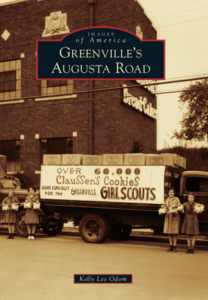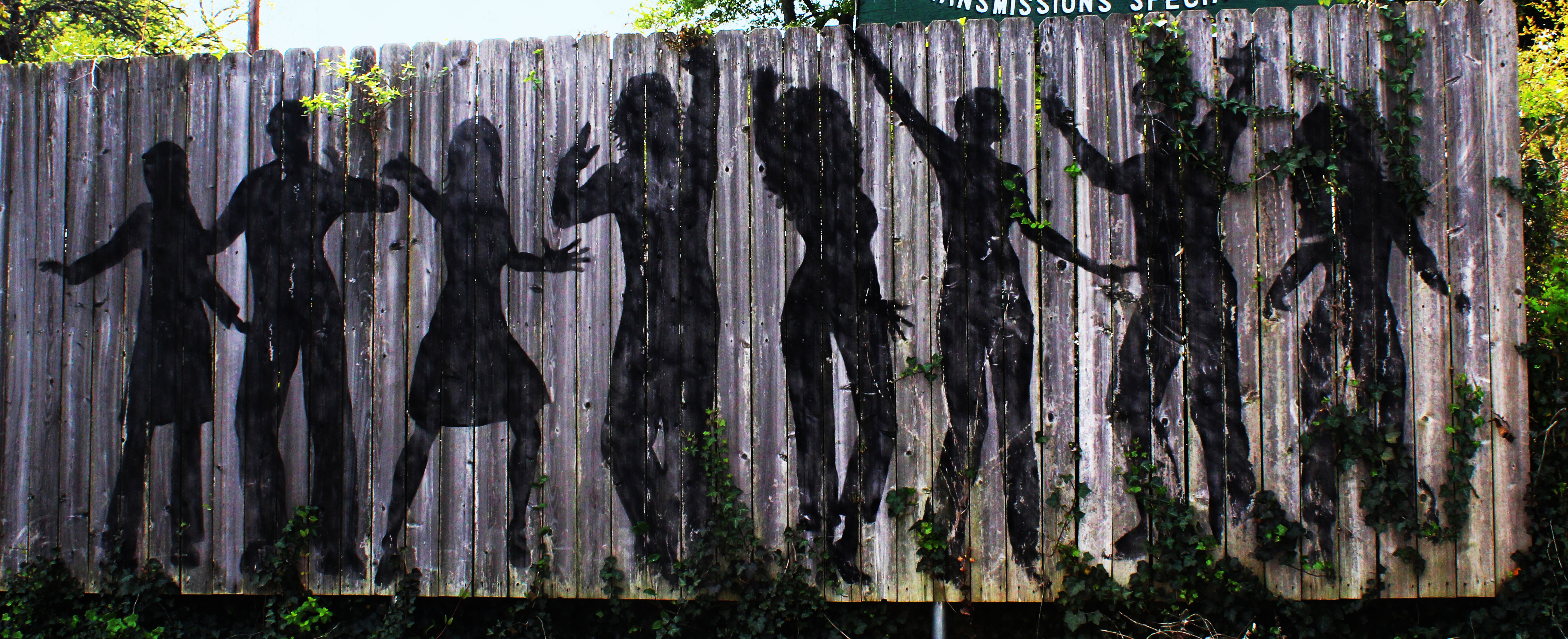 "For many Greenvillians, Augusta Road is a place, not a pavement; it is, in fact, a way of life".
"For many Greenvillians, Augusta Road is a place, not a pavement; it is, in fact, a way of life".
Augusta Road is believed to have been originally established as a path by the Cherokee Indians and used to transport goods to the Savannah River. The name Augusta Road came in the 1830's when it became a road leading from Greenville to Augusta, Georgia. It was a shipping point for produce and live stock and became well known later for traveling stage coaches and the main mail route.
On December 8, 1853 the community gathered for the arrival of the first train at the Augusta Street Depot. With plenty of passengers and cargo the area quickly became desirable. In 1854 Furman University's new main building opened in the area and Greenville's only physician made Augusta Street his home. The Reedy River has always been a highlight of Greenville and Augusta Road being the entry way to get to the River and the bustling downtown.
During the Civil War the Augusta Depot was the busiest location in Greenville. It was the location for information and daily news. Names of the deceased and wounded were called aloud throughout the day.
In 1869 the town became a City. In 1877 the Wilkins House was built, which has been moved to Mills Avenue, and by 1891 the first businesses of Augusta Road began including the "Crescent Ridge Spa".Greenville's first trolly started in 1901 and by 1913 the street was paved all the way to Grove Road, "a mighty highway, forty feet wide".
Augusta Road "suburbs began begin built as well as churches and schools. The Greenville Country Club development was announced. In 1927 Augusta Road was designated as U.S. highway 25. In the 1920's business came such as Claussens Bakery, the Baskerteria No. 2. now known as The Marquette, Campbell's Pharmacy and Dixie Home Store. In the 1930's came Lucky Strike Cafe and Bowling Alley, billiard parlors, the Dixie Grill, the Clean Cleaners and Greenville's Baseball Park.
The Building of Greenville High School in 1938 brought the greatest growth to Augusta Road attracting residents and more development. World War II brought even more growth with The Greenville Army Air Base on land right off Augusta Road. Airmen and families came seeking housing and schools for children.
After the war came many new churches and the sub-divisions began expanding and in 1947 the area was annexed into the city limits. In 1948 the first "mall" of South Carolina was developed. The Lewis Plaza Shopping Center, brought instant success to Augusta Street. With its movie theatre, two department stores, jewelry store, gift shop, post office, shoe store, dentist office, pharmacy, grocery store and apartments, Lewis Plaza and the surrounding neighborhoods had now made the Augusta Road area seem like a small town. Lewis Plaza is currently under construction and will soon be bustling once again.
In those days along Augusta you could buy a car, a hotdog, go to elementary school, high school and college; get your hair cut, attend a funeral, go to church, the movies, the bank, doctor and dentist; play pool, go bowling and dancing, have your car serviced, pick up groceries and laundry, buy a new dress and shoes, post mail all with the smell of freshly baked bread from Claussen's filled the air. Claussen's may not be baking bread now but still stands as a historic location and serves as business offices and a restaurant/brewery.
 In the old days Augusta Road met all the needs of it's residents and now the city still claims Augusta Road as a charm of Greenville, SC. A true home town in the middle of the city. Still the residents can find everything they need right here "Only On Augusta".
In the old days Augusta Road met all the needs of it's residents and now the city still claims Augusta Road as a charm of Greenville, SC. A true home town in the middle of the city. Still the residents can find everything they need right here "Only On Augusta".
More information and history on Augusta Road can be found in the books "Greenville's Augusta Road" written by Kelly Odom, owner of The Pickwick Pharmacy & Soda Fountain and "The History of Augusta Road" written by Judith Bainbridge and published by Augusta Road Business Association. The first book can be found in shops along Augusta. Both books are at The Greenville County Library in the South Carolina History section along with many others telling tales on life on Augusta Road.


